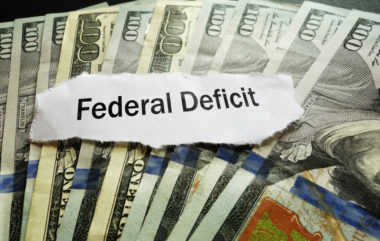Lenders don’t provide loans to borrowers out of the kindness of their hearts. They offer loans that charge interest, which accrues over time and increases the amount you owe. This interest is what allows lenders to make a profit off the loans they provide.
As a borrower, you’re responsible for paying back the loan amount along with interest. The amount of interest you owe on top of the loan balance varies depending on the interest rate and loan type. Learning about capitalized interest, how it’s calculated, and how to avoid it will ensure you can address your student loan debt responsibly when you graduate.
Table of Contents
What Is Capitalized Interest?
When you agree to a loan but don’t begin paying it off right away, the interest you accrue is called capitalized interest. The sum of this interest is added to your loan balance so you end up paying more than the original loan amount that was outlined in your loan terms.
For example, say you agreed to a student loan that provided you with $20,000 at a 5% interest rate. The lender doesn’t require you to begin making payments until you graduate from college. It takes you four years to graduate but the lender also provided you with a six-month student loan grace period where you didn’t accrue interest or need to make payments.
While you were in school and not contributing to pay off your private student loan, you accrued $2,937 in interest. This capitalized interest is added to your loan balance, so you now owe $22,937 instead of $20,000.
If you choose to pay off your student loans early and contribute to them while you’re in school, your capitalized interest won’t be as high. If not, you may need to lengthen your loan term or increase your monthly payment amount to pay off your loan. It’s important to be aware of capitalized interest, how it may affect your financial responsibility, and the monthly payment you owe on your student loans after graduation.
What Causes Interest Capitalization?
With student loans, interest is usually capitalized during the deferment period. This is the period of time when you’re in school and your lender doesn’t require you to make payments on the loan.
Some students don’t realize their interest is added to the loan balance while they’re in school, increasing their student loan debt. Bigger student loan balances mean larger monthly payments or longer loan terms, contributing to the student loan crisis that many graduates face.
Your interest may also capitalize when you’re in a forbearance period. This is a break from payments that a lender may offer if you’re close to defaulting on your loan and can’t afford to continue paying. While you’re excused from making payments during your forbearance period, interest is still accruing and once it capitalizes, it’s added to the loan balance.
You should review your repayment plan to ensure you know if your interest will capitalize. You can usually avoid capitalized interest by paying it off before you owe payments on your loan. By paying your student loans early during your deferment period, the interest you pay isn’t added to your loan balance.
What Happens When Interest Is Capitalized on Your Loan?
When interest is capitalized on your loan, your loan balance increases. This negatively affects your repayment plan by increasing your monthly payments or the time it will take you to pay off your loan. When capitalized interest is added to your loan balance, it also increases the amount of money you pay over the life of the loan.
If you can’t afford your repayment plan and you go into default, your student loan may hurt your credit score. Reviewing how your interest is capitalized and the repayment plan you’ll be responsible for following once you graduate will help you prepare to tackle your student loan debt.
How to Avoid Capitalized Interest on Student Loans
There are two strategies you can use to avoid capitalized interest on your student loans. If you can implement one of these strategies and not allow your interest to capitalize, you’ll pay less for your student loans when you graduate and begin following your repayment plan.
Make Payments While You’re in School
If you make payments while you’re still attending school, you can chip away at the interest that’s accruing before you graduate. By paying off this interest while earning your higher education, your loan repayment plan remains the same and your loan balance doesn’t increase.
Keep in mind, you may be eligible for tax breaks on the interest you pay, such as the federal student loan interest tax deduction. If you qualify for tax deductions, you can write off the student loan interest you paid, which decreases your tax liability and saves you money.
Make Double Payments
Even if your lender provides you with grace and deferment periods, make payments during these times anyway. By beginning to make your student loan payments during your deferment and grace periods, you’ll eliminate the interest that would usually accrue while you’re in school. If you can pay off all this interest, it won’t be added to your loan balance once you graduate.
If you can afford to make double payments while you’re in school, you can also begin to decrease your loan balance. This makes your repayment plan easier to stick with and it may even reduce your loan term.
Understanding when your interest is capitalized and how to avoid it from happening is critical to paying off your student loan debt. If you can pay off your interest before you graduate from college, you won’t have to deal with a longer or more aggressive repayment plan and you won’t face an increased loan balance.
Image Source: https://depositphotos.com/





